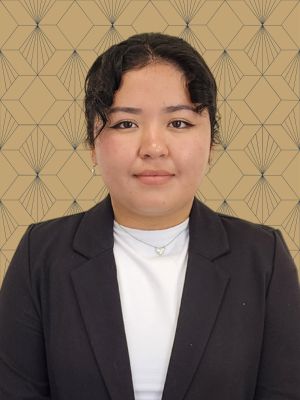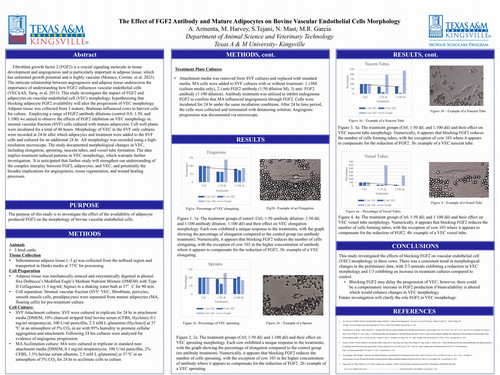Fibroblast growth factor 2 (FGF2) is a crucial signaling molecule in tissue development and angiogenesis. It is particularly important in adipose tissue, which has unlimited growth potential and is highly vascular (Monaco 2023). The intricate relationship between angiogenesis and adipose tissue underscores the importance of understanding how FGF2 influences vascular endothelial cells (VEC)(Ali 2013). This study investigates the impact of FGF2 and adipocytes on vascular endothelial cell (VEC) morphology, hypothesizing that blocking adipocyte FGF2 availability will alter the progression of VEC morphology. Adipose tissue was collected from 3 mature, Brahman influenced cows to harvest cells for culture. Employing a range of FGF2 antibody dilutions (control 0:0, 1:50, and 1:100) we aimed to observe the effects of FGF2 inhibition on VEC morphology in stromal vascular fraction (SVF) cells cultured with mature adipocytes. Cell well plates were incubated for a total of 48 hours. Morphology of VEC in the SVF only cultures were recorded at 24 hr. after which adipocytes and treatment were added to the SVF cells and cultured for an additional 24 hr. All morphology was recorded using a high-resolution microscope. The study documented morphological changes in VEC, including elongation, sprouting, nascent tubes, and vessel tube formation. The data implies treatment induced patterns in VEC morphology, which warrants further investigation. It is anticipated that further study will strengthen our understanding of the complex interplay between FGF2, adipocytes, and VEC, and potentially the broader implications for angiogenesis, tissue regeneration, and wound healing processes
Faculty Mentor: Dr. Michelle Garcia
Department of Animal Science and Veterinary Technology


